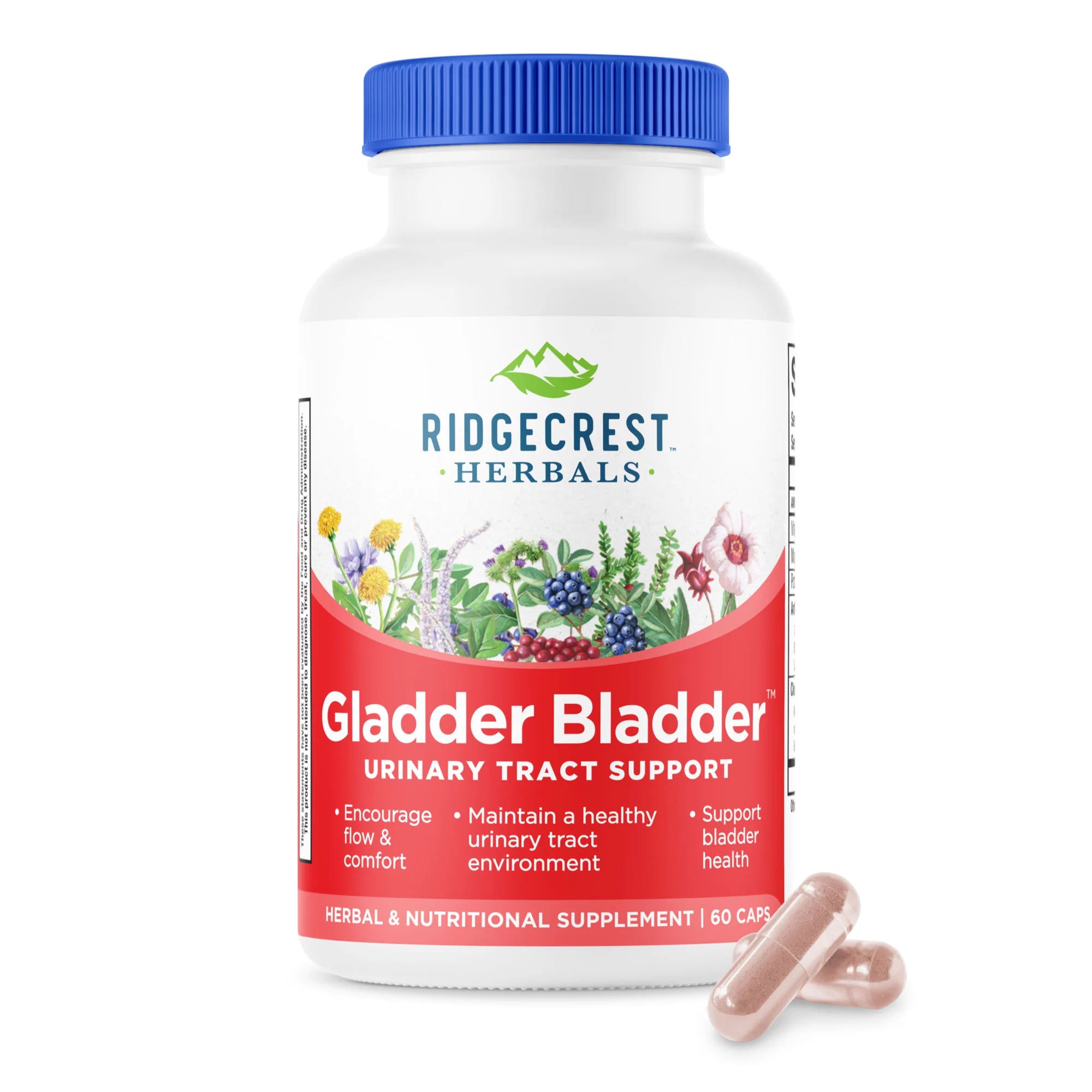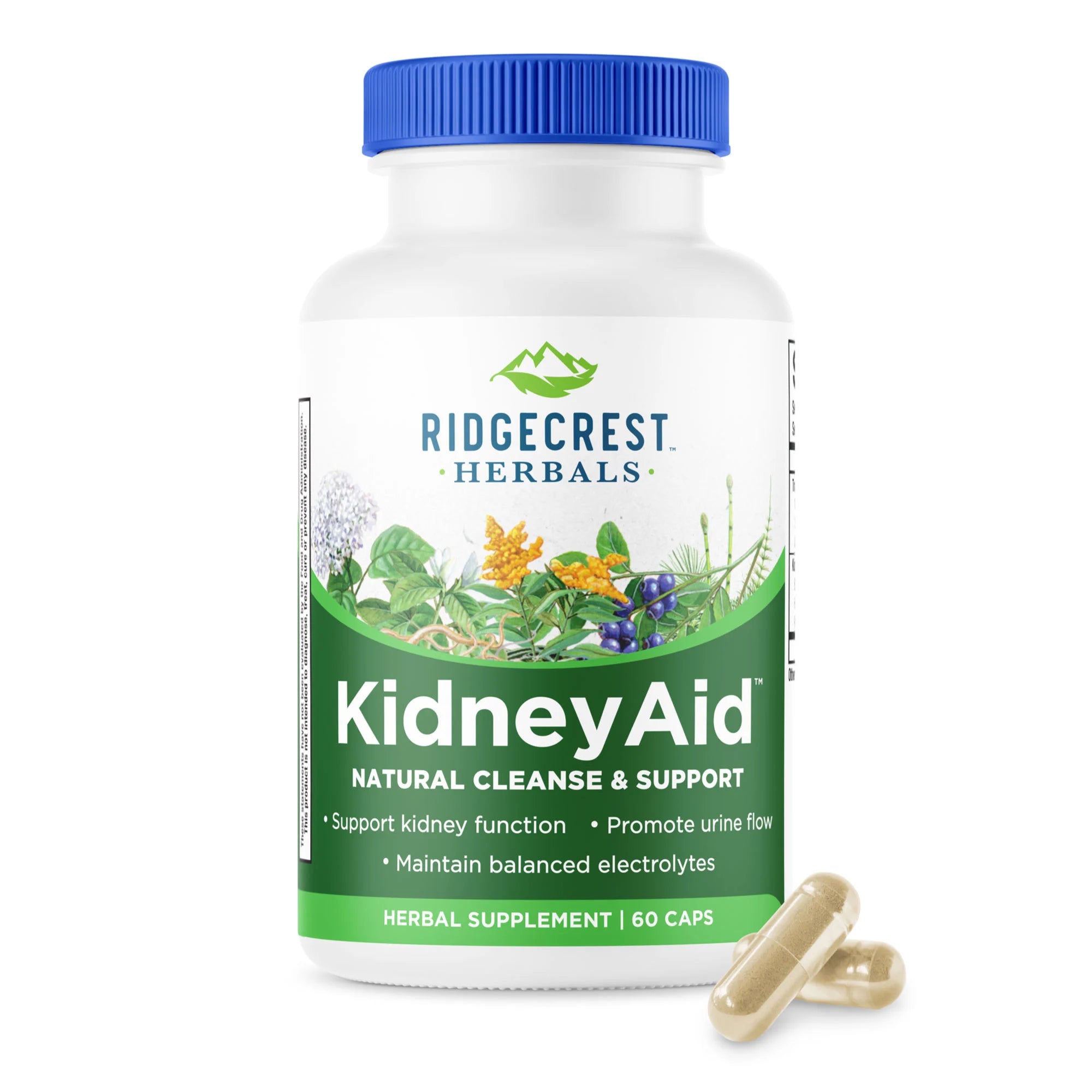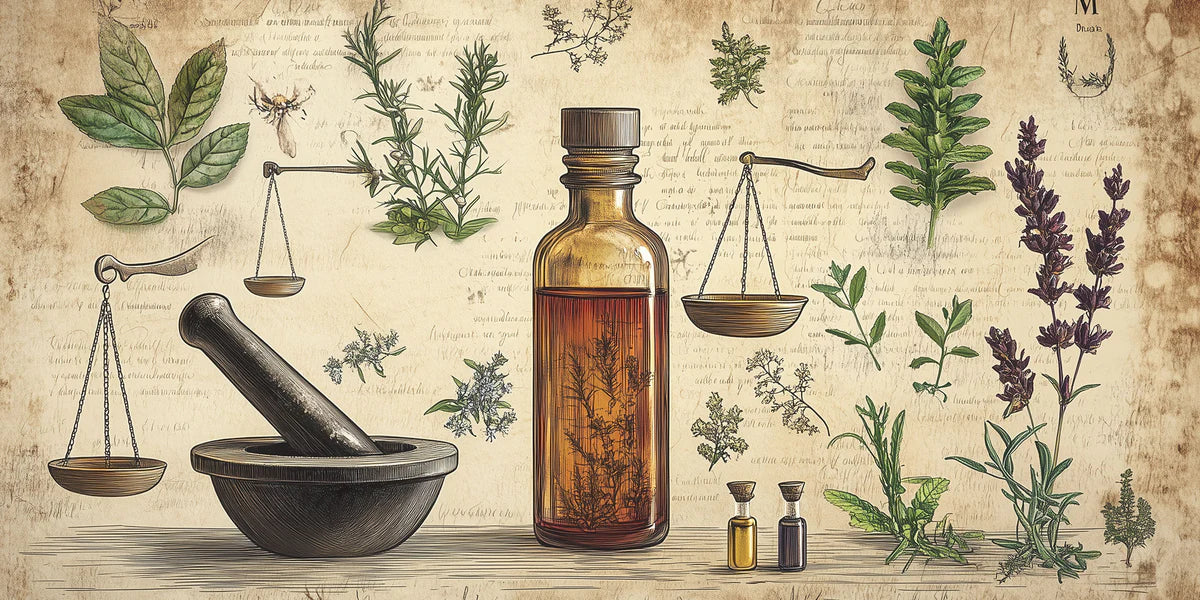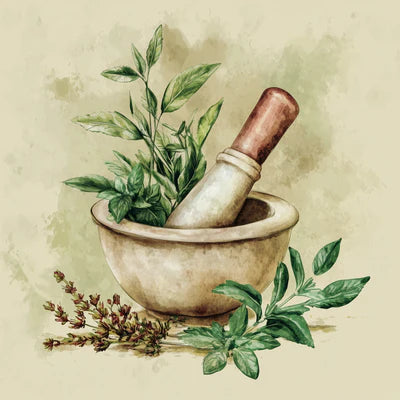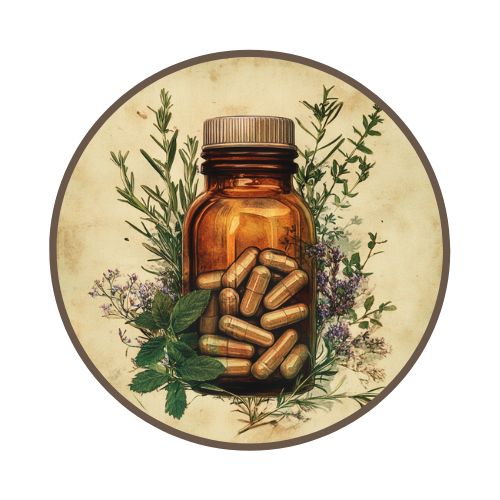
Juniper: (Juniperus communis)
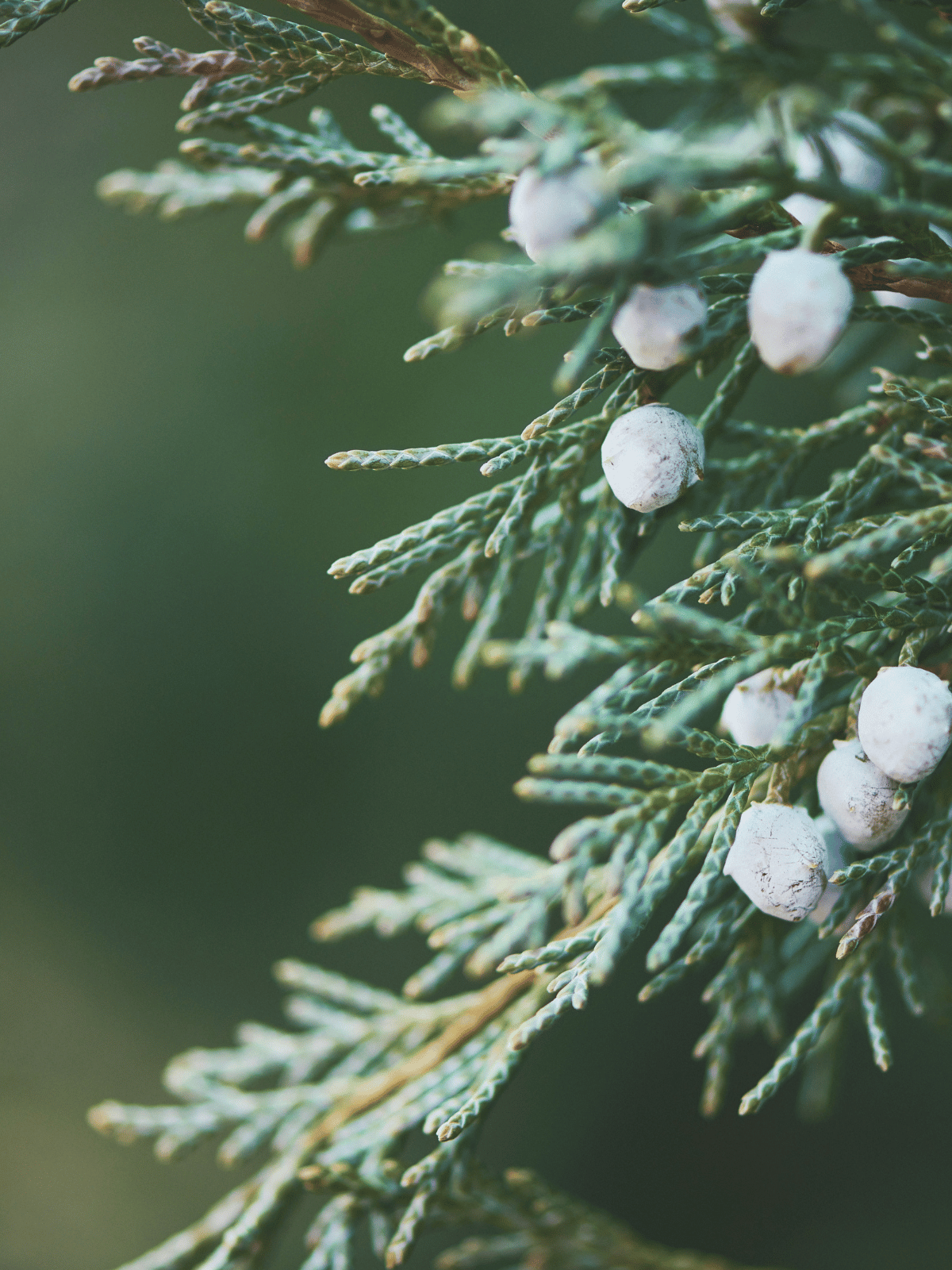
Juniper is a hardy coniferous tree or shrub that belongs to the cypress (cupressaceae) family. There are over 50 different species of Juniper. They grow slowly and can live a very long time with some junipers in the western United States being estimated to be more than 2,000 years old! Known for it's unique aroma and strikingly beautiful blue berries, it has captivated the attention of many cultures throughout history. Beyond its beauty, juniper boasts a myriad of uses ranging from culinary delights, medicinal applications, to sustainable woodcraft. Juniper wood is resilient and prized for it's durability and aromatic qualities which makes it ideal for furniture and smoking meats. It has been used to make fence posts, pencils, storage chests, plus more.
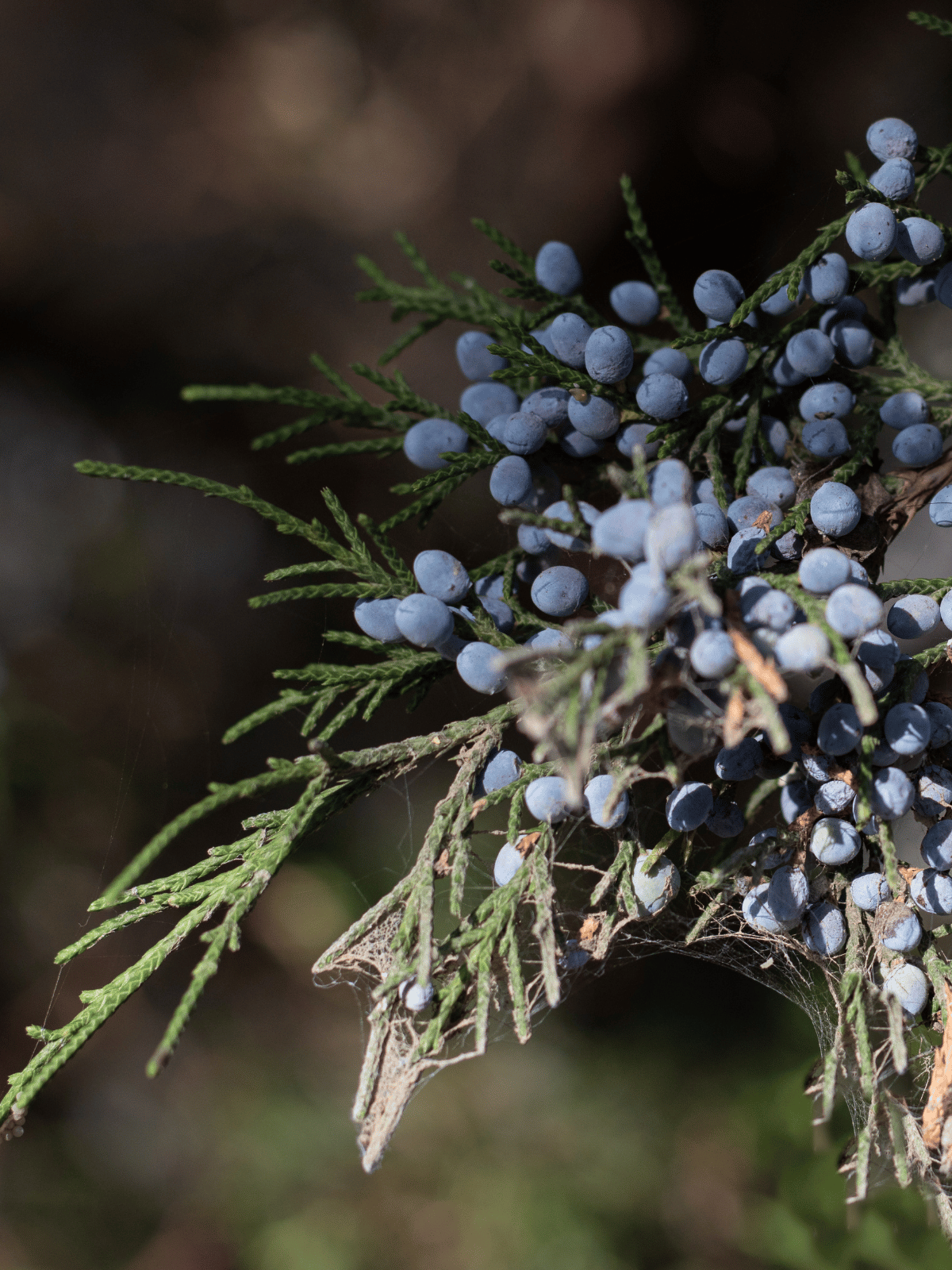
Juniper has a long history of use and has been used all over the world for centuries in traditional medicine, for its many benefits, as well as in cooking. The earliest recorded use of juniper was in ancient Egypt around 1500 BC for parasites. The Romans used it to help with digestive and oral health. It was used in Scotland to flavor whiskey. In central European folk medicine, it was considered a "cure-all". In Scottish folkloric and Gaelic polytheist religious practices, the smoke of burning juniper was used to cleanse, bless, and protect households. Essential oils extracted from its foliage have long been valued in aromatherapy for their purifying properties.
Juniper berries have been used in many cuisines including Norwegian, Danish, Swedish, German, Austrian, Czech, Polish, Hungarian, Northern Italian as well as Indigenous Americans. They are used to flavor gin, meats, marinades, casseroles, sweet dishes, preserved foods, and chili. The berries can be used fresh or dried, crushed or whole, and are famously used to flavor gin, adding a distinctive herbal note.

- Blood health
- Immune health
- Inflammatory response health
- Respiratory health
- Microbial & fungal health
- Digestive health
- Blood sugar health
- Urinary tract health
- Kidney health
- Cellular health
- Heart health
- Joint health
Juniper is a hardy coniferous tree or shrub that belongs to the cypress (cupressaceae) family. There are over 50 different species of Juniper. They grow slowly and can live a very long time with some junipers in the western United States being estimated to be more than 2,000 years old! Known for it's unique aroma and strikingly beautiful blue berries, it has captivated the attention of many cultures throughout history. Beyond its beauty, juniper boasts a myriad of uses ranging from culinary delights, medicinal applications, to sustainable woodcraft. Juniper wood is resilient and prized for it's durability and aromatic qualities which makes it ideal for furniture and smoking meats. It has been used to make fence posts, pencils, storage chests, plus more.
Juniper has a long history of use and has been used all over the world for centuries in traditional medicine, for its many benefits, as well as in cooking. The earliest recorded use of juniper was in ancient Egypt around 1500 BC for parasites. The Romans used it to help with digestive and oral health. It was used in Scotland to flavor whiskey. In central European folk medicine, it was considered a "cure-all". In Scottish folkloric and Gaelic polytheist religious practices, the smoke of burning juniper was used to cleanse, bless, and protect households. Essential oils extracted from its foliage have long been valued in aromatherapy for their purifying properties.
Juniper berries have been used in many cuisines including Norwegian, Danish, Swedish, German, Austrian, Czech, Polish, Hungarian, Northern Italian as well as Indigenous Americans. They are used to flavor gin, meats, marinades, casseroles, sweet dishes, preserved foods, and chili. The berries can be used fresh or dried, crushed or whole, and are famously used to flavor gin, adding a distinctive herbal note.
- Blood health
- Immune health
- Inflammatory response health
- Respiratory health
- Microbial & fungal health
- Digestive health
- Blood sugar health
- Urinary tract health
- Kidney health
- Cellular health
- Heart health
- Joint health



Herb Nerd Field Guide
This comprehensive guide delves into the native regions, usable parts, preparations, compounds, nutrients, and healing properties of each herb.
From traditional flavors and temperatures to each herb’s unique qualities, this guide is crafted to deepen your understanding of the herb.
With insights on it's properties and how they support health, this guide equips you with practical and historical knowledge to identify, understand, and use herbs effectively on your wellness journey.
“Herbs are like whispers from the Earth, guiding us towards a life in tune with nature's rhythms.”
- Alchemy of Herbs
North American, Europe, Asia, the Artic, and Central America
berries, bark, oil, wood, leaves
Powdered, capsule, tincture, extract, tea, topical, oil, culinary, fragrance
flavonoids, antioxidants, volatile oils, coumarins, monoterpenes, polyphenols
Vitamin C, minerals
circulates qi, disperses cold, clears heat, clears damp, disperses wind, resolves phlegm
sweet, sour, pungent
warm
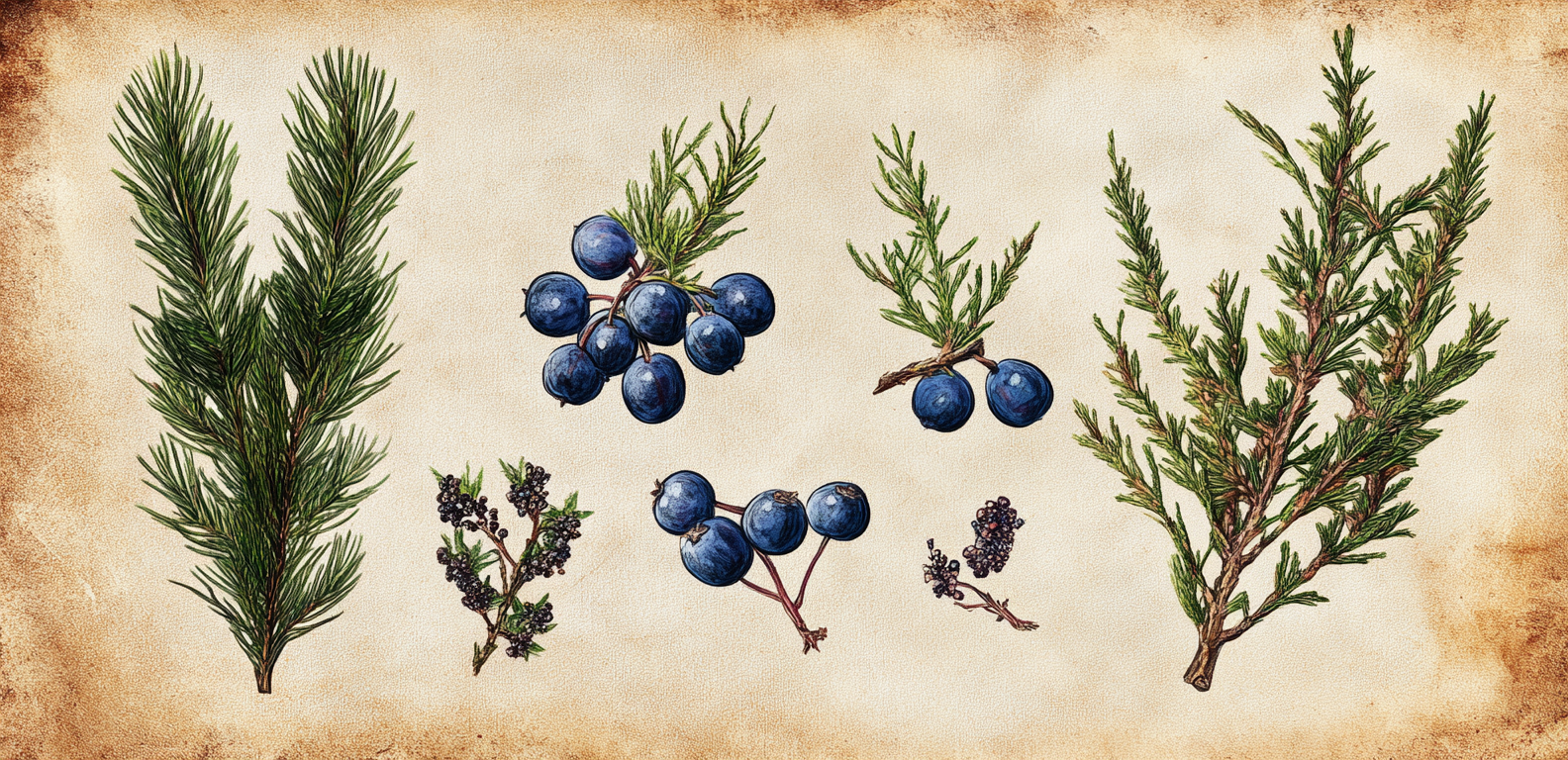
Flowers
Male flowers are small and yellow. Female flowers are greenish and appear from May to June.
Male and female flowers are borne on separate plants. The flowers are wind-pollinated.
Fruits
Juniper fruits are cones made of fleshy scales and look like berries. They are green in the first year and become blue or purple-black when ripe the second year. Every fruit usually bears around 3 hard, triangular seeds.
Leaves
Juniper has evergreen, prickly, small, blue-green needles with a central white stripe, stiff, arranged in clusters of three.
Growing & Foraging
Juniper is versatile in zones 3-9, prefer full sun, in well-drained soil. Junipers, like most conifers, are great for fall and winter foraging. The berries are actually fleshy cones, and not true berries. They are usually covered with a white powdery bloom. This bloom is wild yeast, which means the berries are a great for making your own wild yeast starter for home brewing.
Foraging Tips:
- Only female plants produce berries
- Be sure you have properly identified the plant
- The berries are potent, so you don't need a large amount depending on what you are doing with them
- Always ask for the plants permission before taking from it
- Understand the land around you, what poisonous or endangered plants will be growing in the area? Avoid spots near pollutants, factories, gold courses, roads, or any place the soil could be contaminated
- Always harvest responsibly. Only take what you need, and leave enough for wild life and regrowth (no more than 5% of one species in a given spot).
- Be mindful of your impact to an area (especially sensitive habitats like wetlands, tundra, or dessert). Walk lightly
- Leave no trace, pack out whatever you bring
- Clean all tools and clothes to avoid transplanting invasive species to new areas
- Clip leaf and plant parts with sharp tools to do the least amount of damage to a plant
- Collect plants in breathable containers like cotton sacks, baskets, or a shirt. Avoiding closed or plastic containers will help prevent mildew and mold
How We Use Juniper:
Juniper is a key ingredient found in our Gladder Bladder™ and KidneyAid™ formulas, and it offers a range of benefits that support urinary tract and kidney health.
- Gladder Bladder™ supports normal urinary system function with a blend of nutrients like Hibiscus, Cranberry (PACran®), Dandelion root, and Juniper. This formula supports healthy bladder and urinary tract function, helping maintain a Gladder Bladder.
- KidneyAid™ keeps your kidneys happy by helping them filter blood, produce urine, and stay effective. It has supportive herbs like Fenugreek, Juniper, and Goldenrod, plus 72 trace minerals like magnesium and iron. Keep your kidneys strong and healthy with these natural ingredients!
Found In
Precautions
There are certain varieties of juniper that are that contain strong resins that is toxic when eaten in large amounts. The best way to determine this is to taste a tiny piece of a berry. If is has a harsh bitter taste, spit it out and don't use internally. Toxicity is mild and you would need to eat a lot of them to do harm. This practice should only ever be done with juniper berries and not with any other wild berry unless you are certain of identification.
Do not use if pregnant, or nursing. For adults only. Juniper may affect some stomach and intestinal disorders, blood pressure, blood sugar, and may interact with some medications and surgery. *Always consult with a licensed medical practitioner before adding any new herbs to your lifestyle.

The Trailblazers of Herbal Medicine
Explore the deep roots of herbal medicine in this fascinating journey through the history and practices that shaped today’s natural wellness landscape. Celebrating and honoring the historical foundation and enduring dedication that continue to inspire herbalists everywhere, keeping ancient wisdom alive in modern wellness.
Learn More

